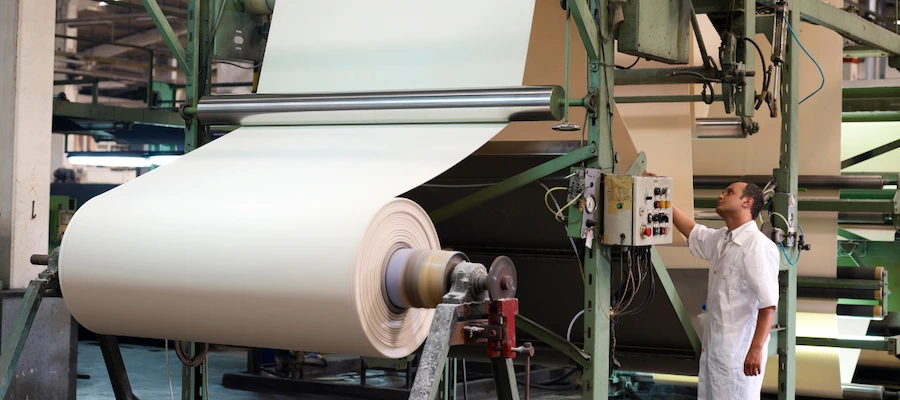Turkey’s textile industry has long been a cornerstone of its economy, providing employment to millions and driving global demand for high-quality garments. However, recent economic challenges, including inflation, rising wages, and shifting labor dynamics, have created significant workforce gaps. To bridge these gaps, the recruitment of foreign workers, particularly from Pakistan, has become a vital strategy for Turkish textile manufacturers.
The Impact of Inflation on Turkey’s Workforce
Turkey’s skyrocketing inflation has led to a sharp increase in wages and the cost of living. For textile manufacturers, this has made it increasingly difficult to retain local workers, particularly in low-wage roles. Skilled labourers such as machine operators and factory workers now demand higher salaries, placing additional financial strain on an industry already contending with intense global competition. Consequently, many Turkish factories are turning to international recruitment to maintain production levels.
Mr. Behnam Ghasemi, Editor-in-Chief of Kohan Textile Journal, highlighted the challenges faced by Turkish manufacturers: ”Inflation in Turkey has significantly impacted the labor market, driving up wages and creating a shortage of affordable local talent. This situation has left textile factories struggling to find skilled workers while remaining cost-competitive in the global market.”
The Changing Dynamics of Syrian Labor
In recent years, the Syrian refugee crisis brought an influx of workers into Turkey, many of whom took up roles in the textile industry. These workers provided a critical labor force for factories that required low-cost, reliable labor. However, with the potential stabilization of Syria and the prospect of a new government, many Syrian workers are considering returning home. This shift is likely to exacerbate existing labor shortages in Turkey’s textile sector.
Mr. Behnam added: ”The evolving situation in Syria is reshaping Turkey’s labor market. Many Syrian workers, who have played a crucial role in Turkey’s textile industry, are now contemplating a return to their homeland. This trend further underscores the urgent need for Turkish employers to explore alternative labor markets, such as Pakistan, to ensure continuity and growth.”
Also Read: Turkish Textile Sector Considers Shifting Production to Syria
Pakistan has emerged as a prime source of skilled and semi-skilled workers for Turkey’s textile sector. With expertise in machine operation, tailoring, and fabric production, Pakistani workers bring valuable skills to the table. Moreover, cultural similarities, shared religious values, and historical ties between the two nations make integration into Turkish workplaces smoother and more efficient.

Pakistani workers are drawn to Turkey for several compelling reasons:
- Higher wages: Turkish textile companies often offer significantly better salaries compared to local opportunities in Pakistan.
- Expanding job opportunities: Turkey’s growing economy provides diverse roles in construction, manufacturing, and textiles.
- Cultural compatibility: Shared cultural and religious values make it easier for Pakistani workers to adapt to Turkish work environments.
- Simplified visa processes: Special agreements between Pakistan and Turkey facilitate smoother recruitment and visa issuance.
Insights from Recruitment Experts
Mr. Ali Awan a recruitment expert from Pakistan shared: ”When a Turkish company needs workers, they simply inform us about the specific roles they require. We take full responsibility for managing the process, from sourcing candidates to handling visa applications at the Turkish Consulate. Our goal is to provide reliable and professional workers who meet the employer’s exact specifications. Recruitment agencies in Pakistan play a crucial role in addressing Turkey’s labor needs. These agencies specialize in sourcing, training, and managing candidates for specific roles in Turkey’s textile sector. From machine operators to general factory workers, Pakistani agencies ensure that their candidates are skilled and ready to contribute.”
These agencies also offer added flexibility to employers by tailoring recruitment efforts to meet both high-volume and specialized labor demands. This adaptability is crucial for Turkish manufacturers navigating economic fluctuations and varying production cycles.
Mr. Ali remarked: ”This collaboration is a win-win situation. Turkey benefits from a reliable, skilled labor force, while Pakistani workers gain access to better wages and professional growth in a globally respected industry. It’s a strategic partnership that supports economic resilience for both nations.”
Economic Benefits for Both Nations
For Turkey, recruiting workers from Pakistan offers a cost-effective solution to labor shortages, ensuring that production levels remain steady without compromising quality. For Pakistan, the arrangement provides economic opportunities for its workforce, enabling workers to earn higher wages and support their families back home.
A Path Forward for Turkey’s Textile Industry
As Turkey continues to grapple with rising inflation, shifting labor dynamics, and global competition, recruiting workers from Pakistan offers a practical and sustainable solution. The shared benefits of this collaboration go beyond addressing labor shortages, creating a foundation for long-term partnerships and mutual economic growth.
Turkey’s textile manufacturers, with the support of recruitment agencies and government facilitation, can leverage this opportunity to maintain their global standing and meet increasing demand. At the same time, Pakistan strengthens its role as a key partner in supporting Turkey’s economic resilience and workforce development. This synergy between the two nations underscores the importance of cross-border collaboration in a rapidly changing global economy.





















Good Article these days In turkey Textile Need Skill workers
Good Article for pakistani skilled workers who are waiting for better future.